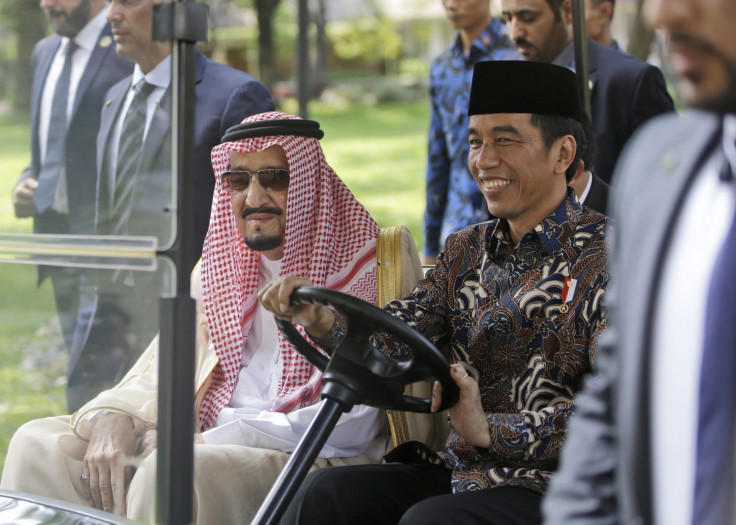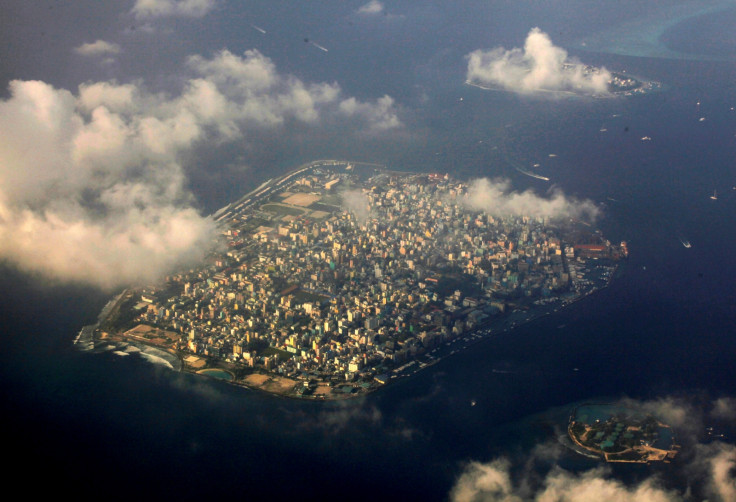Paradise lost: How the Maldives sold its land to Saudi Arabia and turned a blind eye to Isis
King Salman's visit to the islands demonstrates the corruption of the regime that seized power in 2012.
As King Salman of Saudi Arabia is set to arrive on the Maldives on 9 March, economic cooperation and investment opportunities will likely dominate the talks. The kingdom is planning on buying an entire atoll of the island – a development that opposition figures warn could endanger the stability of the country and threaten the security of the Indian Ocean.
Maldivian land was previously protected under the country's constitution, but following the coup in 2012 – against the first democratically elected government of President Mohamed Nasheed – the constitution was amended in 2015 and now allows for foreign investors to buy land.
"The implications cannot be stressed enough," warns former Vice President Dr Mohamed Jameel Ahmed. "Our most precious resource is our land – over 90% of territory is covered in water. We live from tourism. Selling our land is giving away our sovereignty to countries with their own agenda – an agenda that could threaten the stability of the Maldives and the Indian Ocean."
The dismantling of democracy in the country is going hand in hand with the rise of Islamic extremism. Nasheed was disposed by a movement led by the former autocratic leader Maumoon Abdul Gayoom under the premise of "defending Islam" against Nasheed's alleged collusion with the West and promotion of Western culture.

Allowing Saudi Arabia to gain a bigger foothold in the Maldives could exacerbate that problem. Since the current president Abdulla Yameen came to power in 2013, the government has reached out to Saudi Arabia for cooperation in various sectors, including Islamic affairs.
The current regime is corrupt to the core, all they care about is their own survival
In November 2015, the Maldives and Saudi Arabia signed an agreement that was hailed as a bridge between the two countries, by which the kingdom would invest in the religious infrastructure of the island – mosques, madrasas, education, and student exchange programmes - to maintain the Islamic fabric of society that some see threatened by Western influences imported by the tourist industry.
Saudi Arabia is known for its financial assistance to other countries to push their own version of religion - the hardline Wahhabi interpretation of Islam. The vast majority of Islamic terrorist organisations in the world today adhere to the Salafi-Wahhabi ideology, including Isis. The Maldives claims second place – after Tunisia – of countries that provide the highest per capita of foreign fighters to the terrorist organisation.
"The current regime is corrupt to the core, all they care about is their own survival," explains Ahmed. "They do not stop people from travelling to Syria or Iraq, as long as they do not protest against the corruption of the government at home. Each fighter that leaves is a headache gone for the decision-makers in Male."
Ahmed believes there is clear evidence that it is a deliberate government policy. "They lock people up for petty offences. Even on trumped-up charges, if you speak out against the regime. Of course they know who these people are that join Islamic State. But they let them go with impunity. Their corruption clouds everything."

In recent years, vigilante gangs – comprising mostly of religious extremists – have been known to abduct individuals accused of spreading secularism and atheism. In June 2014, several young men were abducted by a gang for being irreligious. They were asked by their captors to recite the Shahadha and prayer verses from the Quran as a test of their beliefs.
In August of the same year, journalist Ahmed Rilwan Abdulla disappeared after investigating the activities of Islamist vigilante groups and voicing concern over the rise of Islamic extremism on the island. He has not been seen since and a group of young men that later left to join Isis were linked to his abduction.
The deteriorating human rights situation on the island has put the Maldives on the agenda of the international community. The country announced in October 2016 that it would resign its membership of the Commonwealth, after mounting pressure from the organisation over corruption and human rights violations in the Indian Ocean state.
"The UK, the US, India – all of them – should have an interest that democracy prevails in the Maldives and free and fair elections can take place in 2018, guaranteed by international standards", according to Ahmed.
"The current regime has time and again postponed local elections and there is no indication that they are interested in a nationwide vote next year," he warned. "We rely on the support of bigger democracies to put pressure on the Maldives, so that our citizens can fight back against the corruption and exercise their democratic right to elect their leaders."
The European Union has some leverage as the Maldives second largest export partner and EU citizens accounting for the second highest number of visitors to the island that remains hugely dependent on foreign income earnings through the tourist industry.
The Maldives is better known for its picture-perfect landscapes and lavish tourist resorts than Islamic extremism and political corruption. But if we continue to ignore the dark shadows that cast over the island, it is questionable for how much longer we can soak-up the sunshine.
Julie Lenarz is the Executive Director of the Human Security Centre. Follow : @msjulielenarz
© Copyright IBTimes 2025. All rights reserved.






















